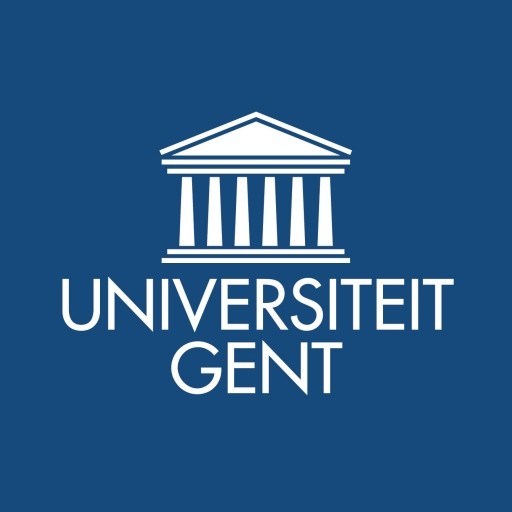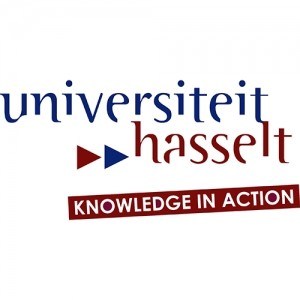Photos of university / #thefoundry_ugent
The Master of Science in Biomedical Engineering at Ghent University is a comprehensive and advanced program designed to equip students with the multidisciplinary skills necessary to innovate and improve healthcare technologies. This program integrates principles from engineering, biology, medicine, and technology to prepare graduates for a variety of roles within the biomedical sector, including medical device development, clinical research, and healthcare innovation.
Throughout the program, students will engage in rigorous coursework that covers core topics such as biomechanics, biomaterials, medical imaging, systems biology, and biomedical signal processing. The curriculum emphasizes both theoretical understanding and practical application, with students participating in hands-on laboratory sessions, projects, and collaborations with industry partners. This approach ensures that graduates are not only well-versed in biomedical engineering principles but also possess the problem-solving skills required to develop novel solutions for complex medical challenges.
Research plays a vital role in the Master's program, with students encouraged to undertake individual or group research projects under the guidance of experienced faculty members. These projects often involve cutting-edge technologies like tissue engineering, regenerative medicine, or wearable health monitoring devices, providing students with valuable experience that aligns with current industry trends and demands.
Ghent University’s Biomedical Engineering program fosters an international environment, welcoming students from diverse backgrounds and offering opportunities for exchange programs and collaboration with leading research institutes worldwide. Graduates of this program are prepared for careers in academia, industry, and healthcare institutions, where they can contribute to advancements in medical technology, improve patient outcomes, and support innovative healthcare solutions.
With state-of-the-art laboratories, a supportive academic community, and a curriculum designed to meet the evolving needs of the biomedical sector, the Master of Science in Biomedical Engineering at Ghent University offers a solid foundation for students aspiring to make meaningful contributions to healthcare and medical technology development.
General Courses
- Quantitative Cell Biology
- Modelling of Physiological Systems
- From Genome to Organism
- Biomedical Product Development
- Biomechanics
- Medical Equipment
- Biomaterials
- Biomedical Imaging
- Neuromodulation and Imaging
- Bioelectronics
- Medical Physics
- Human and Environment, Safety and Regulations
- Technology and Design of Artificial Organs
- eminars: Innovations in Biomedical Engineering [en, nl]
- Healthcare Organisation and Informatics
Elective Courses
Elective Courses Biomedical Engineering
- Biostatistics
- Modeling in Medicine and Biomedical Engineering: Case Studies
- Multidisciplinary Biomedical Project
- Internship 1
- Internship 2
- Internship 3
- International Internship 1
- International Internship 2
- International Internship 3
- Manufacturing Planning and Control
- Ethics, Engineering and Society
Elective Courses Cluster Medical Devices
Advanced Design Methods in Biomedical Engineering
- Computional Fluid Dynamics
- Computational Biomechanics
- Fluid-structure Interaction
- From Medical Image to Computational Model
Assistive Technologies
- Biomedical Robotics
- Virtual Reality
- Computer Assisted Surgery
Micro and Nano Devices
- Design of Microsystems
- Microphotonics [en, nl]
- Biophotonics
- Sensors and Actuators
- Photonics [nl]
- Micro and Nanobiotechnology
- Technology of Integrated Circuits and Microsystems
- Technological Processes for Photonics and Electronics [nl]
- Embedded Bioelectronics Systems
Elective Courses Cluster Health Care
Personalized Medicine
- Physics and Chemistry of Nanostructured Materials
- Polymers for Bio-related Applications
- Contrast Agents and Biomarkers for Imaging and Therapy
Neuro-engineering
- Advanced Image and Signal Processing [en, nl]
- Nuclear Magnetic Resonance Imaging Technology
- Contrast Agents and Biomarkers for Imaging and Therapy
- Bioelectromagnetism
- Biomedical Acoustics
- Neuro-physiological Signal Processing and Network Analysis [nl]
- Artificial Intelligence
Engineering (Physics) in Oncology
- Measurement Techniques in Nuclear Science
- Nuclear Physics [en, nl]
- Nuclear Reactors and Cyclotrons
- Technology of Radiotherapy
- Medical Dosimetry
- Radiologic Techniques
- Radioprotection and Regulations [nl]
- Radiochemistry [nl]
- Radiobiology and Radiopathology
- Contrast Agents and Biomarkers for Imaging and Therapy
Requirements
- The course is open to students with at least a bachelor's degree
- Reference letters
- A TOEFL-TEST with a minimum score of 90 (internet-based). Test participants should specify the "institution code" 2643 for UGent and 0749 for KULeuven, so that the score can be sent directly to the university.
- An original 'academic test report form' (TRF) from IELTS with a minimum overall band score of 7.0.
- A certificate awarded by the Ghent University Language Centre confirming proficiency in English, CEF-level B2
- Certificate Practical English 5, Upper-Intermediate Academic English or Preparing for an English test, issued by the Ghent University Language Centre.
- Cambridge-ESOL: First certificate in English (FCE)
- Enrollment fee of Ghent University for academic year 2016-2017 is 890 € for EER-students and students from OESO-DAC-list (developing countries), all other students pay an enrollment fee of 5330 €
The financing of the Biomedical Engineering program at Ghent University is primarily structured around a combination of government funding, student tuition fees, and private or industry partnerships. As a public university in Belgium, Ghent University benefits from substantial support from the Flemish Ministry of Education and Training, which allocates funds to ensure the development and maintenance of high-quality educational programs, including Biomedical Engineering. These funds are used to support faculty salaries, research activities, laboratory resources, and student services, ensuring that students receive comprehensive education and practical training aligned with current technological and medical advancements.
Tuition fees for the program are standardized for both domestic and international students, with variations depending on the student's nationality and residency status. Flemish students typically pay lower fees compared to international students, but Ghent University offers financial aid and scholarships to support students in funding their studies. These include scholarships based on academic performance, financial need, and specific talent or background criteria.
In addition to public funding and tuition, industry collaborations play a significant role in financing the Biomedical Engineering program. The university partners with healthcare companies, medical device manufacturers, biotechnology firms, and research institutes. These collaborations often involve sponsored research projects, internships, and industry-funded laboratories, providing both financial resources and opportunities for students to gain practical experience. These partnerships also facilitate technology transfer and innovation, aligning educational activities with industry needs.
Ghent University also encourages students to seek external financial support through scholarships, grants, and work-study opportunities offered by Belgian government programs, European Union initiatives, and private foundations. Such funding sources are vital for supporting student mobility, research projects, and conference participation.
Furthermore, the university invests in continuous curriculum development, faculty training, and state-of-the-art laboratory facilities, funded through a combination of governmental grants and industry investments. These resources ensure that the Biomedical Engineering program remains at the forefront of medical technology education, preparing graduates to meet the demands of a dynamic healthcare and biomedical industry.
Overall, the financing structure of the Biomedical Engineering program at Ghent University is a multifaceted system designed to sustain high-quality education through a blend of public funding, tuition income, industry support, and external scholarships. This foundation ensures the program can offer cutting-edge research opportunities, state-of-the-art laboratories, and a comprehensive curriculum that equips students with the necessary skills to contribute to the biomedical field effectively.
The Master of Science in Biomedical Engineering at Ghent University is a comprehensive graduate program designed to prepare students for careers at the intersection of engineering, medicine, and biology. The program combines rigorous coursework with practical research opportunities, aiming to equip students with the theoretical knowledge and technical skills necessary to develop innovative solutions for healthcare challenges. The curriculum covers a broad range of topics, including biomechanics, medical imaging, biomaterials, tissue engineering, and systems biology. Students are encouraged to undertake interdisciplinary projects, often collaborating with medical professionals and research institutions, to gain real-world experience. The program also emphasizes the development of critical thinking, problem-solving, and research skills, enabling graduates to contribute to technological advancements in healthcare settings or to pursue further academic research. Ghent University’s state-of-the-art laboratories and research centers provide an excellent environment for hands-on learning and experimentation. Graduates of this program are well-prepared for careers in medical device development, clinical engineering, biomedical research, or for continuing their education at the PhD level. International students are welcomed, and the university offers various support services to facilitate their integration and success. Overall, the Master of Science in Biomedical Engineering at Ghent University offers a strong foundation in both engineering principles and biomedical sciences, fostering innovation and excellence in the rapidly evolving field of healthcare technology.



